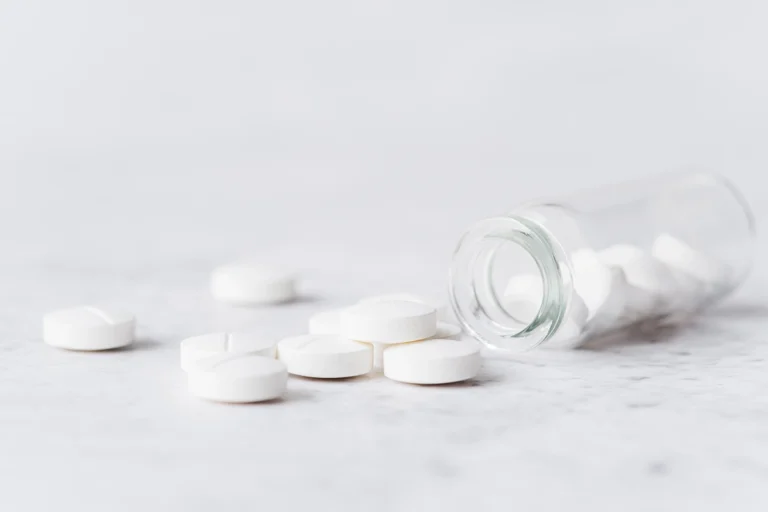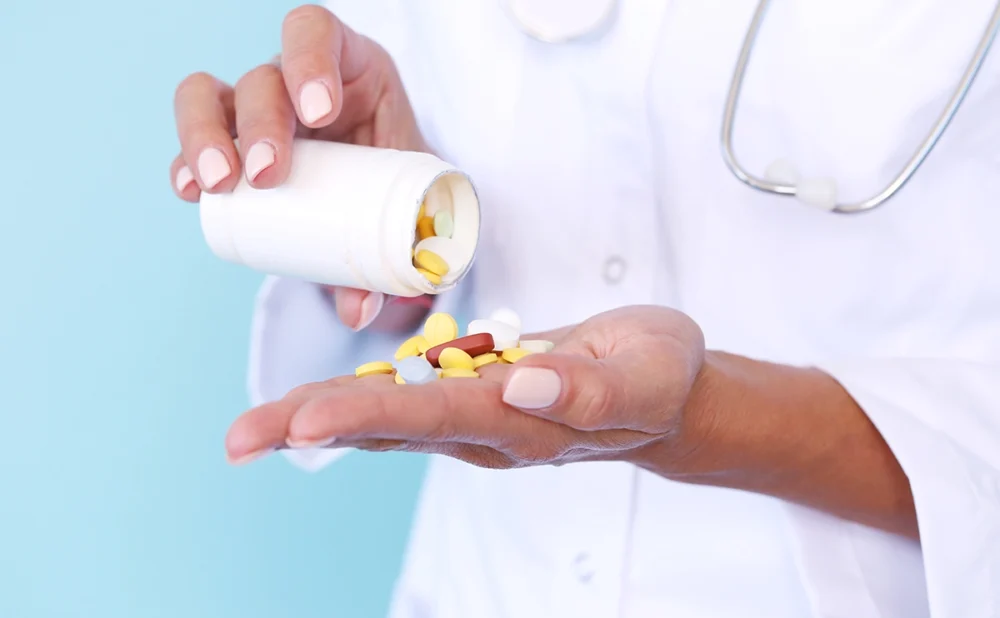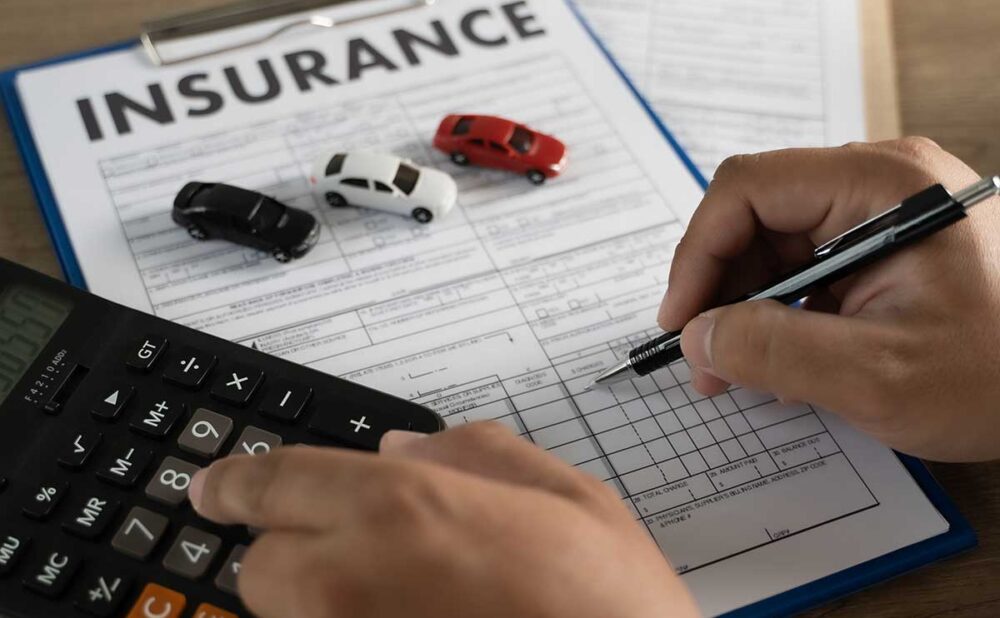Medication Errors and Pharmaceutical Negligence
Pharmacy malpractice can have serious consequences for individuals who suffer injuries due to medication errors. If you or a family member experienced harm due to a mistake made by a pharmacy, you might qualify for compensation to cover your injuries. Seeking compensation for such incidents is crucial to ensure justice and accountability. Consulting with a pharmacy malpractice lawyer is essential in exploring legal options and potentially filing a lawsuit to address the harm caused.
The impact of pharmacy malpractice extends far and wide, affecting numerous individuals across the country. Legal professionals are actively investigating cases of pharmacy malpractice to advocate for those who have been harmed. Understanding the root causes and implications of pharmacy errors is paramount in recognizing the importance of seeking legal assistance following an injury.
Victim of a Medication Error? Contact Us For A Free Consultation
Victim of a Medication Error?
What is Pharmaceutical Malpractice?
Pharmacists play a critical role in healthcare by ensuring the accurate dispensing of prescribed medications to patients. Pharmaceutical malpractice arises when pharmacists fail to fulfill their duties adequately, leading to severe, and at times, fatal consequences. Victims of pharmaceutical errors may be eligible for compensation through legal avenues such as medication error lawsuits.
Seeking Legal Guidance
In cases of pharmacy malpractice, enlisting the support of a knowledgeable legal team is essential. At The Jewkes Firm, our experienced medical malpractice lawyers are available to provide guidance on legal options at no cost and without obligation. By consulting with a pharmacy malpractice lawyer, individuals can gain valuable insights into their rights and potential avenues for seeking redress in the aftermath of a medication error.
Understanding Pharmacy Malpractice Statistics
The prevalence of pharmacy malpractice in the United States is a concerning issue that demands attention. Consider the following statistics to grasp the scope of pharmaceutical errors:
- Each year, between 1 and 1.5 million Americans sustain injuries due to medication errors.
- Nearly half of all Americans take prescription medications monthly, with approximately 1 in 100 prescriptions resulting in harm.
- Certain vulnerable populations, such as the elderly and those with limited healthcare access, are at higher risk of pharmacy malpractice injuries.
- Distraction accounts for about 75% of pharmacy malpractice cases, highlighting a common contributing factor.
- Medication errors incur approximately $3.5 billion in additional medical costs annually.
- Individuals affected by pharmacist errors have the right to seek assistance from a pharmacy malpractice lawyer.

Examining Pharmacy Mistakes and Medication Errors
Pharmacy errors and medication mistakes can occur due to various factors that impact the healthcare system. From administrative processes to human errors, the potential risks associated with incorrect medications highlight the critical role of pharmacists in ensuring patient safety.
Pharmacy errors are a significant contributor to adverse drug reactions and related fatalities. The demanding nature of pharmacy work, often involving long shifts and a high volume of prescriptions, underscores the need for stringent protocols to prevent errors and safeguard patient well-being. Moreover, the demanding nature of pharmacy work, coupled with factors like fatigue, inadequate training, and the complexity of drug information, further increases the likelihood of errors in medication dispensing.
Another factor that contributes to pharmacy errors and medication mistakes is the similarity in drug names. Prescription medications with names that sound alike, such as alprazolam and lorazepam, or chlorpropamide and chlorpromazine, can easily lead to mix-ups, potentially endangering patients’ well-being.
The prevalence of pharmacy errors can be attributed to factors like fatigue, inadequate training, and the complexity of technical information within the field.
In conclusion, understanding pharmacy malpractice and the legal remedies available to individuals impacted by medication errors is crucial in upholding patient safety and seeking accountability within the healthcare system. By engaging with legal professionals specializing in pharmacy malpractice, individuals can navigate the complexities of seeking compensation and advocating for justice in the wake of preventable harm.

A Pharmacist’s Responsibility
The responsibility pharmacists hold in their duty of care toward patients is paramount, as any breach of this duty can have severe consequences for the individuals relying on their expertise.
The duty of care in pharmacy practice requires pharmacists to adhere to a standard of care that prioritizes patient safety and well-being. Patients trust pharmacists to accurately fill prescriptions, provide correct dosages, and offer necessary consultations on medication warnings and interactions. However, instances of pharmacy mistakes, such as dispensing incorrect dosages or failing to communicate essential information, represent a breach of this duty and can result in harm to patients.
In cases where pharmacy errors lead to patient injuries, seeking legal recourse through a pharmacy malpractice lawyer may be necessary to address the harm caused by negligence or oversight in medication handling.
Common Types Of Pharmacy Errors
Understanding the common types of pharmacy mistakes can help patients recognize potential errors and advocate for their safety when receiving prescription medications. Pharmacy errors can occur in various forms when dispensing prescriptions. Below are three potential pharmaceutical mistakes that may arise:
Mislabeling
Mislabeling of medications is a prevalent type of pharmacy error, often involving missing or inaccurate information on prescription labels. Patients may receive medications without essential dosage instructions, warnings, or details on potential side effects, increasing the risk of adverse drug reactions.
Additionally, errors in labeling can occur due to inaccuracies in prescription information provided by doctors or mistakes made during the dispensing process. Even a minor typographical error could result in an incorrect dosage of a medication, potentially causing harm to the patient. Such errors may stem from the pharmacy’s end rather than originating from the prescribing physician.
Any discrepancy involving inaccurate or missing prescription information falls under the category of mislabeling.
Given the Wrong Medication
Another common pharmacy mistake is providing the wrong drug to patients, which can result from confusion between similar drug names or patient identities. Patients expecting one medication may receive a different drug due to mix-ups in prescription processing, highlighting the need for meticulous attention to detail in medication dispensing practices.
The scenario of receiving the wrong medication is relatively straightforward: when a patient anticipates drug A but is dispensed drug B instead.
Medication errors can have serious consequences, making them one of the most critical issues in the realm of pharmacy errors. The repercussions of receiving the wrong medication can range from mild discomfort to severe medical conditions, and it is essential to be aware of the potential risks involved.
This mistake commonly arises from confusion between similar drug names or mix-ups in patient identities. While some patients might recognize that they have received an incorrect medication, others may not notice.
One alarming scenario involves cases where children are mistakenly administered adult dosages of medication, resulting in permanent brain damage in some instances. This highlights the grave impact that pharmacy errors can have on individuals, emphasizing the importance of accurate prescription dispensing.
Such incidents underscore the urgent need for strict adherence to safety protocols and thorough verification processes within pharmacies to prevent such errors from occurring.
If you or someone you know has been provided with an erroneous medication by a pharmacy, seeking advice from a pharmacy malpractice attorney is advisable.
Failure to Warn
The concept of “failure to warn” is another critical aspect of medication safety. This occurs when patients are not adequately informed about the potential side effects and risks associated with their prescribed medication. Pharmacists play a crucial role in conveying this vital information to patients to ensure their well-being and prevent adverse reactions.
Certain drugs have severe or even life-threatening side effects under specific conditions, and it is incumbent upon pharmacists to communicate these risks effectively.
If your pharmacist neglected to warn you verbally or through written documentation about potential side effects, you may have grounds for seeking compensation for any resulting injuries.
In conclusion, ensuring patient safety in pharmacy practice requires a collaborative effort to minimize the occurrence of medication errors. By understanding the factors that contribute to pharmacy mistakes and advocating for rigorous adherence to patient care standards, both healthcare professionals and patients can work together to promote a culture of safety and accountability in medication handling.

Medication Errors and Pharmaceutical Negligence
Medication errors can lead to a range of injuries, including but not limited to:
- Loss of vision
- Heart attack
- Birth defects
- Overdose
- Seizures
- Internal bleeding
- Coma induction
- Brain damage
- Organ damage and failure
- Allergic reactions
- Death
These consequences underscore the gravity of medication errors and the imperative need for enhanced vigilance in the dispensing process.
Allergic Reactions
Certain patients may have allergic reactions to specific medications. Allergic reactions to medications pose a significant risk, especially when patients receive drugs to which they are allergic due to pharmacy errors.
Although a patient’s known allergies are typically recorded in the pharmacy system, errors can still occur, resulting in the patient receiving the allergen. Experiencing an allergic reaction to medication can have severe consequences.
Common symptoms of allergic reactions due to medication errors include:
- Skin rash
- Hives
- Swelling
- Itching
- Breathing difficulties
It is crucial to consult a medical professional at the first sign of adverse reactions to medication.
Drug Interactions
Another significant risk associated with pharmacy errors is drug interaction.
Some combinations of medicines can be hazardous when taken together.
Examples include:
- Warfarin combined with antibiotics.
- Thyroid hormones mixed with proton pump inhibitors.
Moreover, interactions between medications can also result in adverse effects, emphasizing the importance of pharmacists ensuring the compatibility of prescribed drugs. Failure to prevent medicine interactions constitutes pharmacy malpractice. Symptoms of drug interactions mimic those of allergic reactions and may also present as dizziness, diarrhea, constipation, nausea, and vomiting.
Pharmacists bear the responsibility of ensuring that prescribed medications do not interact adversely with each other. Failure to do so constitutes pharmacy negligence.
Medical Complications
Pharmacy-related injuries can lead to an array of medical complications. Medical complications can arise from unnoticed side effects or errors in medication, highlighting the importance of proper care and vigilance in managing your health.
Complications refer to undesirable effects arising from an existing illness or condition.
In many cases, pre-existing diseases or injuries increase vulnerability to further health issues over time. Some complications manifest immediately through noticeable side effects, while others may remain latent for extended periods – potentially emerging months or even years later.
Preventing medical complications involves proper care for existing conditions and ensuring that prescriptions are current and appropriate.
In conclusion, medication errors can precipitate a cascade of medical complications, underscoring the critical need for stringent quality control measures in pharmacies. By raising awareness about the potential risks associated with pharmacy errors, we can strive towards a safer and more reliable healthcare system for all individuals.

Am I Eligible for a Medication Error Lawsuit?
If you’ve experienced harm due to a pharmacy mistake, you may have grounds to seek financial compensation in a medication error lawsuit.
Legal experts are actively investigating cases of pharmaceutical errors that have adversely affected patients, underscoring the need to seek legal advice promptly.
To determine if you qualify for a medical error lawsuit, promptly reach out to a medical malpractice attorney.
Additionally, it is crucial that you preserve any possible evidence such as:
- Medication labels
- Dates
- Pharmacy details
- Medical invoice
Pharmacy Malpractice Settlements
Cases of pharmacy malpractice are on the rise. The potential settlement for medication errors can vary significantly, ranging from modest sums to substantial payouts, contingent upon the extent of damages incurred. Engaging a proficient lawyer specializing in pharmacy malpractice is essential to navigating the legal process effectively and maximizing your chances of a fair settlement.
Act promptly to secure your pharmacy malpractice settlement.
Victim of a Medication Error? Contact Us For A Free Consultation
Victim of a Medication Error?
Filing a Lawsuit for Medication Errors
If you or a family member has experienced harm due to a medication mistake, you could seek compensation by pursuing legal action through a medication error lawsuit or pharmacy malpractice lawsuit.
Pharmacy malpractice cases can be complex, but understanding your rights and legal options is crucial if you’ve been harmed by a medication error. In such situations, the pharmacy or pharmacist responsible may be held liable for the injuries incurred. However, it’s essential to note that there could be other defendants involved in some cases.
Prior to initiating a medication error lawsuit, it is advisable to address your medical needs by:
- Discontinuing use of any incorrect medication (if safe to do so)
- Seeking appropriate healthcare
- Adhering to the medical advise provided by your doctor
To prepare for your medication error lawsuit, it is important to understand the procedures involved in a civil lawsuit. After gaining this understanding, the next crucial step is to hire a personal injury attorney who specializes in pharmacy malpractice cases. It is advisable to seek out a lawyer with a proven track record in personal injury litigation, particularly in the area of medical malpractice. A pharmacy malpractice lawyer plays a vital role in helping you seek compensation for your injuries, whether through a settlement or a verdict.
Gathering Evidence
Collaborating with your pharmacy malpractice lawyer to gather compelling evidence demonstrating the impact of the pharmacist’s error on your well-being is integral to substantiating your case.
Accessing Damages
After assessing your injuries and losses, your attorney will determine the compensatory and punitive damages you may claim in the lawsuit.
Liability and Compensation
The responsible pharmacy or pharmacist is typically liable for your injuries, though additional defendants may be involved. Your attorney will aim to secure compensation through a settlement or court verdict.
Time Constraints and Legal Support
It’s important to act swiftly when pursuing a medication error lawsuit or pharmacy malpractice claim due to state statutes of limitations. Failing to adhere to these timelines can result in losing the opportunity to seek legal recourse. Therefore, reaching out to a pharmacy malpractice lawyer without delay is crucial to initiating the legal process.
Need a Free Consultation? Need a Skilled Attorney?
Free Consultation
Call (770) 771-5130
If you’ve been injured, you need to hire the best legal care to assist you with your claim. Get a FREE consultation today!
Seeking Legal Assistance for Pharmacy Malpractice
Pharmacy malpractice cases raise several legal questions and concerns, including issues related to pharmacist misconduct and medication errors. Understanding your rights in such scenarios is crucial, and seeking guidance from legal experts can provide clarity on the appropriate course of action.
If you believe a pharmacist has failed to fulfill their duty or if you’ve suffered harm from a medication error, consulting with a pharmacy malpractice lawyer can help you navigate the legal complexities involved. By taking proactive steps and seeking legal support, you can protect your rights and pursue the compensation you deserve in pharmacy malpractice cases.
The Jewkes Firm: Your Partner in Pharmacy Malpractice Cases
Proactive measures in safeguarding your health, coupled with swift legal action in response to medication errors, can help you secure the justice and compensation you deserve in the event of pharmaceutical mishaps.
At The Jewkes Law Firm, our team of seasoned pharmacy malpractice lawyers is dedicated to assisting clients in understanding and navigating the complexities of such cases. We offer no-obligation consultations free of charge, ensuring that individuals receive the guidance they need to make informed decisions about their legal matters.
Our firm operates on a contingency fee basis for pharmacy malpractice clients, meaning that our clients only pay legal fees if they successfully secure compensation. Contact The Jewkes Firm today at (770) 771-5130 to discuss your pharmacy malpractice case with experienced professionals who are committed to advocating for your rights.











